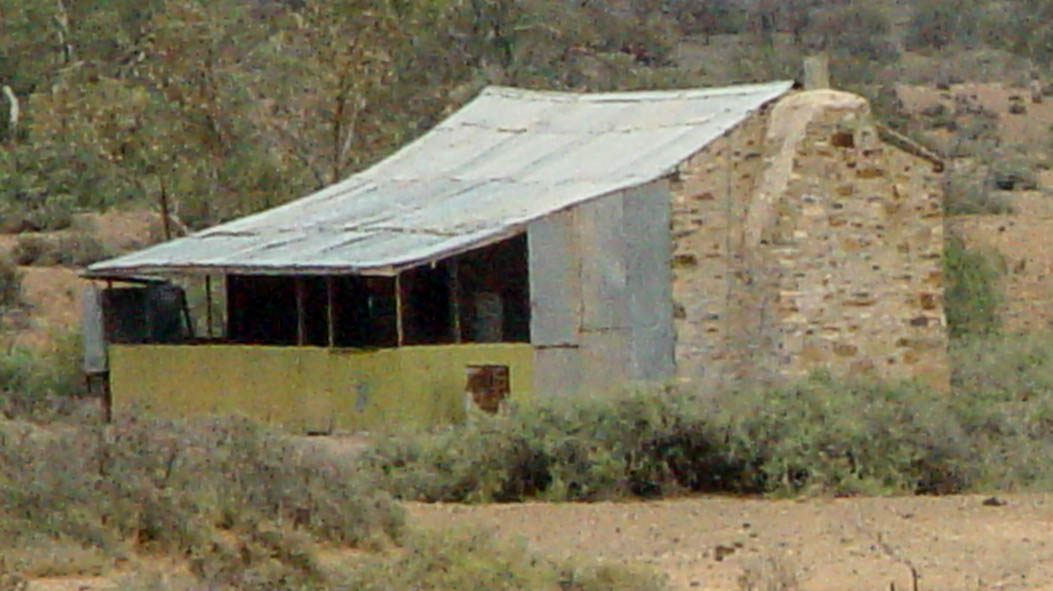IAN McAULEY. Reclaiming the ideas of economics: Wealth
November 13, 2019
Money cant buy me love: nor can it buy me wealth
On the night of John Howards 2004 election victory an ABC journalist, cameraman in tow, wandered around seeking comments from people in the crowd. He found a young man who said Of course I voted for Howard: three years ago my house was worth only $300000; now its worth $500000. Im $200000 wealthier thanks to his government.
Had he said the market value of my house has increased by $200000 his comment would have been a statement of fact similar to the way newspapers report on movements in the prices of BHP or Wesfarmers shares.
But did that market price movement make him any wealthier? Probably not, for presumably his house in 2004 would have been little changed from its condition in 2001 perhaps worn in a few places, perhaps enjoying the improvement of a re-modelled bathroom or replaced gutters. For the most part movements in house prices, like movements in the price of commodities such as iron ore and wheat, are responses to the laws of supply and demand. Most of the rise in Australian house prices over this century is simply asset-price inflation.

The young mans choice of words is understandable, because the word wealth has had a dollar sign put in front of it, confining its meaning to monetary valuation valuations revealed in market transactions. People whose task is to help others with financial planning call themselves wealth managers, Credit Suisse reports that at $US181000, the median wealth of Australians is the second highest in the world (just behind Switzerland, of course); our own Bureau of Statistics reports that last year average household wealth passed the $1 million mark.
The word wealth has narrowed down a great deal from its older and broader meaning, which was about well-being in all its dimensions, including a share in the common-wealth.
It is notable for example, that the term Commonwealth of Australia now has almost an anachronistic ring about it. Whenever its use is not dictated by rules of formality, public servants and ministers almost always refer to the Australian Government rather than to the Commonwealth. The word commonwealth brings to mind those assets we share physical assets such as our roads and public buildings, national treasure such as our libraries and art museums, institutional assets such as our universities and the ABC, environmental assets such as our national parks and oceans, and less tangible shared assets such as our social capital the bonds of mutual trust that make daily life safe and bearable. A government that wants us to believe that all wealth arises in the market sector, and that the only meaningful wealth is that which is measurable in monetary terms, certainly doesnt want us committing the thoughtcrime of trying to bring our common wealth to account.
This is not to suggest private wealth is unimportant, but, like our common wealth, it too is multidimensional. It includes our house and other material possessions, but that inclusion is in terms of the value we enjoy in the services they provide rather than their market value a value that is relevant when we come to buy or sell things. What counts for us, almost all the time, is their value in use rather than their value in exchange to refer to a distinction going back to Aristotle, Aquinas, Marx and Polanyi and that is fundamental to Mariana Mazzucatos work on value and wealth.
Our wealth also includes our own health, our own human capital education, experience, knowledge and personal reputation. It includes our networks of friends and colleagues. And it includes benefits of our shared social capital those relationships of trust that allow us to relate to others, mostly strangers, for our day-to-day transactions.
Wealth, in all these personal and shared dimensions, is what Germans understand by their word _Wohlstand,_that a dictionary translates to wealth, but which for Germans retains its older, multi-dimensional meaning: Germans have learned the hard way with two collapses of their currency in the last hundred years that money, in itself, is a fragile asset.
But our government does not want us to think in these broader terms, for such thinking would allow us to see that its obsession with the budget cash surplus is close to meaningless, while its own policies are resulting in a depletion in our real wealth. And in a particularly cruel measure, it is applying policies designed to stimulate housing price inflation in the hope that people, sucked in like the young man who turned his loyalty to Howard, use their imagined increased financial wealth to spend and to go further into debt.
A British pop group in the 1960s sang money cant buy me love; if they were to make a comeback today the lyric could be money cant buy me wealth.
This is the ninth of a series of articles in Pearls and Irritations on reclaiming the ideas of economics. Others so far have been:
General introduction (September 19)
Aspiration (September 26)
Jobs and Growth (October 3)
Society, economy and the environment (October 10)
Regulation and deregulation (October 17)
Taxes (October 24)
Globalisation (October 31)
Debt and deficits (November 7)
Ian McAuley is a retired lecturer in public finance at the University of Canberra and a Fellow of the Centre for Policy development.
